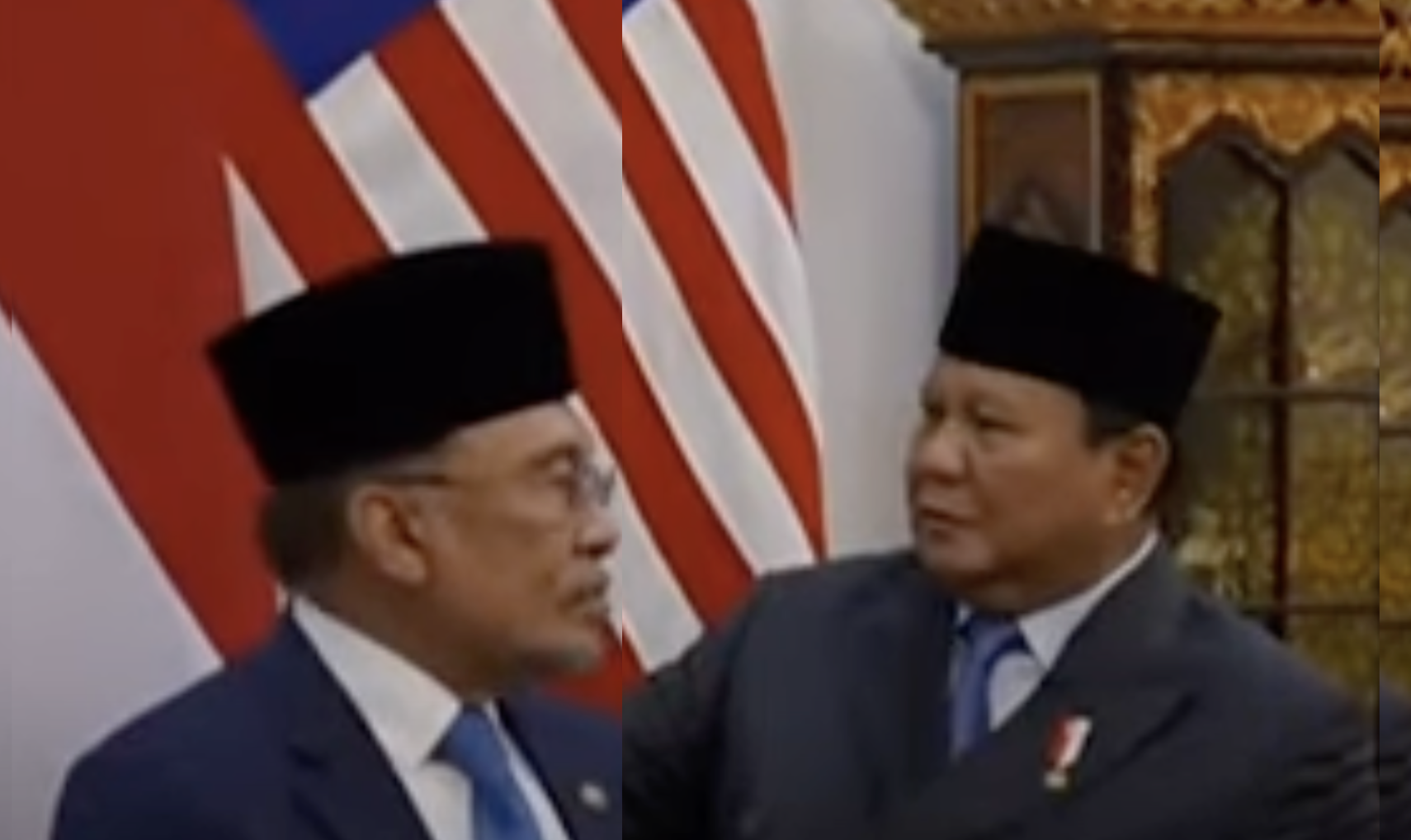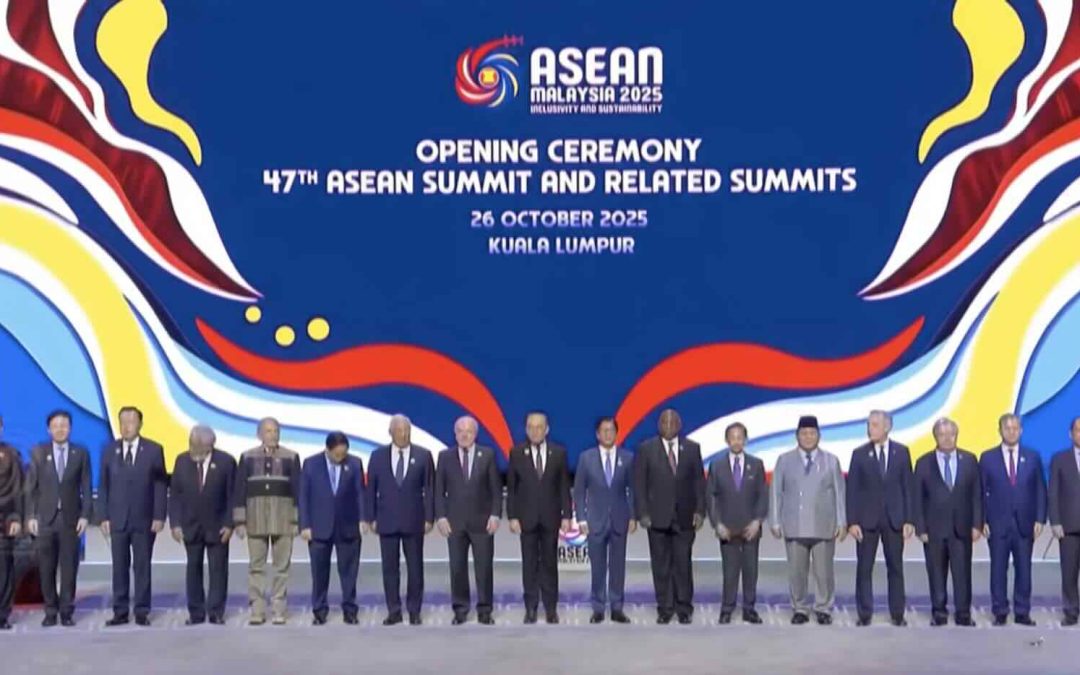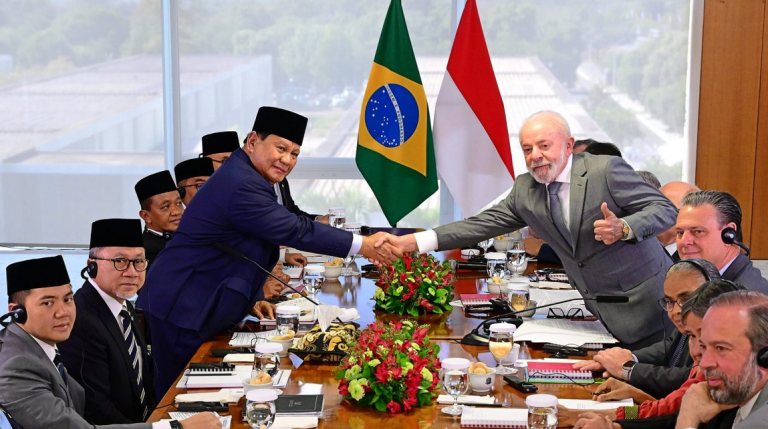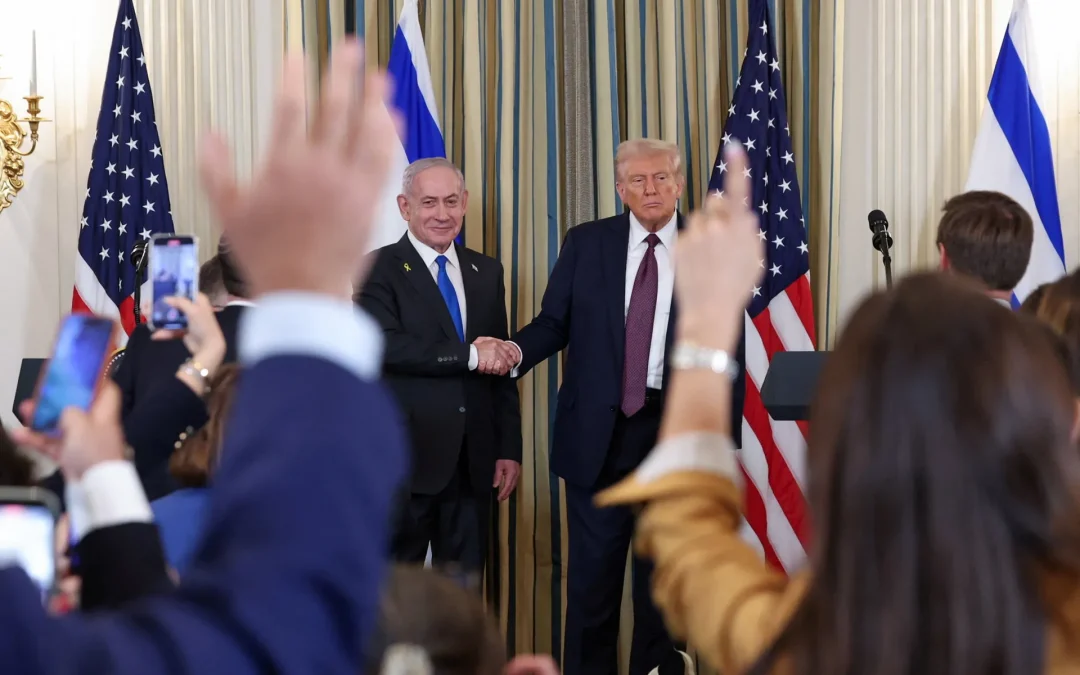“In 2005, Indonesian Foreign Minister Hasan Wirayuda rejected the joint-development solution in Ambalat offered by Malaysia. His argument was that Indonesia had a strong legal basis to support Indonesia’s claim over the Ambalat block. Yet, in 2025, Indonesia emphasized the importance of a mutually beneficial solution through joint-development in the Ambalat block. Meanwhile, Malaysia emphasized legal steps in resolving the dispute in the area it called Sulawesi Sea. “
The dispute between Indonesia and Malaysia over claims to the Ambalat Block has resurfaced in recent days. The Ambalat dispute surfaced after Malaysian Prime Minister Anwar Ibrahim made a strongly worded statement regarding Malaysia’s position on the Sulawesi Sea. The Malaysian prime minister vowed to win his dispute with Indonesia over territorial ownership in the Sulawesi Sea.
During his visit to Kinabalu City, Sabah, on August 3, 2025, he stated, “We will protect every inch of Sabah. I will defend this principle. I chose to answer this now because we are defending Sabah on behalf of the federal government,” as quoted in MalayMai (August 3, 2025).
This strong and straightforward statement demonstrates the highly political nature of the Ambalat issue within Malaysia. There has been criticism from the Malaysian Parliament that Prime Minister Anwar Ibrahim appears unserious about resolving the dispute with Indonesia. The Malaysian Prime Minister wants to secure the full support of the Sabah federal government and the state’s people.
Malaysia’s High Confidence in Legal Mechanisms
The Malaysian government maintains that the Ambalat region claimed by Indonesia is part of Malaysia’s sovereignty. Malaysia claims to have a strong legal basis to win its territorial dispute with Indonesia.
This confidence is supported by Malaysia’s experience in successfully winning its claim to Sipadan and Ligitan through legal channels in 2002. On December 17, 2002, the International Court of Justice ruled that Sipadan and Ligitan Islands were part of Malaysia’s sovereignty. This decision by the International Court of Justice ended the dispute over Sipadan and Ligitan Islands, which had lasted from 1969 to 2002. Sipadan and Ligitan are located 150 kilometers from Tarakan Island in North Kalimantan (Kompas, May 31, 2025).
On July 22, 2025, the Malaysian Ministry of Foreign Affairs (Wisma Putra) stated in a written letter to the Malaysian Parliament that the ND6 and ND7 oil exploration blocks, claimed as part of Indonesian territory under the name Ambang Batas Laut (Ambalat), are within Malaysia’s sovereign territory in accordance with international law. The Malaysian Foreign Minister believes that this claim is based on international legal principles, including a 2002 International Court of Justice decision concerning territorial disputes in the surrounding areas.
The Malaysian Foreign Minister also considered that the reference to Indonesia’s claim to the Ambalat block was inaccurate. The correct term for the area is the Sulawesi Sea, which aligns with Malaysia’s position.
This belief was further reinforced when the Malaysian Prime Minister expressed Malaysia’s desire to pursue legal action. In a dialogue with the Association of Malaysian Indonesian Journalists (ISWAMI) and editors-in-chief of Indonesian media outlets on July 29, 2025, the Malaysian Prime Minister stated that “With regard to the Ambalat issue (in the Sulawesi Sea), we follow the legal path. We do not take an aggressive stance. Both sides must avoid encroaching into each other’s territory.” Malaysia is committed to using a legal framework and diplomatic negotiations (MalayMail, July 29, 2025).
ISWAMI was established in 2005 as an initiative to build a constructive narrative among Indonesian and Malaysian media outlets in an effort to reduce friction over sensitive bilateral issues. This dialogue was established following tensions between Indonesia and Malaysia regarding exploration in the Ambalat Sea.
In the context of high domestic political pressure, it is understandable that Prime Minister Anwar Ibrahim had to make a strong statement, as he did in Kinabalu City, Sabah. PM Anwar Ibrahim’s strong statement was made to refute criticism that Anwar Ibrahim had ignored Malaysia’s sovereignty over the Sulawesi Sea, which is said to be rich in oil and gas potential.
Indonesia’s Shifting Position: From Legal Settlement to Win-Win Solution
While Malaysia is confident due to its perceived legal framework, the Indonesian government is being very cautious. This cautious stance tends to give the impression of weakness. The Prabowo administration is offering a win-win solution to the dispute with Malaysia.
This position differs from the situation in 2005. At that time, Malaysia offered a win-win solution with the idea of joint development. The disputed area would be divided into two equal parts, each of which would develop and benefit from the benefits.
Foreign Minister Hassan Wirayuda rejected the offer, arguing that Malaysia’s legal basis was inappropriate. The Indonesian Foreign Minister believes Indonesia’s position in the Ambalat case is stronger than in the Sipadan and Ligitan cases, based on the 1982 International Convention of the Sea.
He believes that Malaysia has no right to measure its outermost islands because it is not an archipelagic state. The applicable definition is the continental shelf, which extends 12 miles from Malaysia’s coast. This position was conveyed during a working meeting with Commission I of the House of Representatives (DPR) at the DPR/MPR Building on September 1, 2005 (Hukum Online, September 1, 2005); Antara, January 13, 2006).
President Prabowo has a different approach to resolving the Ambalat dispute, offering a more win-win solution. When meeting with Anwar Ibrahim in Jakarta on June 27, 2005, President Prabowo offered joint development in the disputed area.
However, Prime Minister Anwar Ibrahim faced significant pressure from the Malaysian Parliament shortly after meeting with President Prabowo. The Malaysian PM stated that no final agreement had been reached during his meeting with Prabowo.
The meeting between Prabowo and Anwar Ibrahim on July 29, 2005, in Jakarta also apparently did not produce a final agreement. At the 13th consultative meeting between the two countries’ foreign ministers on July 29, 2005, there was no mention of any agreement between Malaysia and Indonesia regarding the Ambalat issue. The statement welcomed the progress achieved in maritime boundary negotiations and emphasized the importance of maintaining constructive engagement and close coordination.
Indonesian Foreign Minister Sugiono stated that technically, there is still a long way to go and stated that technical matters will continue to be discussed between the two parties.
Does Malaysia have the upper hand?
Based on Anwar Ibrahim’s statement in Sabah, it seems difficult for Malaysia to accept Indonesia’s offer to jointly develop the Ambalat region. The journey will drag on until the negotiation process reaches a deadlock. This deadlock leaves room for Malaysia to take the Ambalat dispute to the International Court of Justice, as it did with the Sipadan and Ligitan cases. If this happens, Indonesia will have to face the potential consequences of losing another piece of territory, as happened twenty years ago. Of course, the opportunity to win a claim to the Ambalat block through legal channels remains wide open if Indonesia can also show strong arguments supported by legal documents, as the Indonesian Foreign Minister once believed twenty years ago.
Territorial diplomacy for an archipelagic nation like Indonesia is indeed challenging and requires skilled negotiators supported by strong legal documents. Beyond Ambalat, Indonesia still has many border points to resolve with its neighbors. The support of the Indonesian people and parliament is certainly vital to ensure the government does not make any mistakes and has strong confidence in winning any border dispute.
Author: YP Hermawan
References:
“RI Tolak Usul Malaysia Untuk Eksplorasi Bersama di Ambalat,” https://www.antaranews.com/berita/26126/ri-tolak-usul-malaysia-untuk-eksplorasi-bersama-di-ambalat
Presiden Prabowo dan PM Anwar Sepakat Tuntaskan Isu Perbatasan, Dorong Kolaborasi Kawasan, https://www.presidenri.go.id/siaran-pers/presiden-prabowo-dan-pm-anwar-sepakat-tuntaskan-isu-perbatasan-dorong-kolaborasi-kawasan/
“Negosiasi pengelolaan bersama Ambalat upayakan solusi saling untung,” https://www.antaranews.com/berita/5024277/negosiasi-pengelolaan-bersama-ambalat-upayakan-solusi-saling-untung?utm_source=antaranews&utm_medium=desktop&utm_campaign=popular_right







